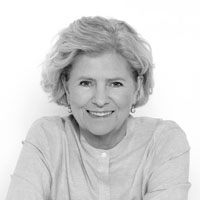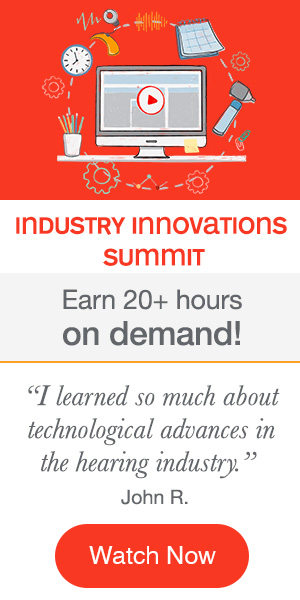Ida Institute Future Hearings Journeys Project
AudiologyOnline: You released at new report on the Ida Institute’s Future Hearing Journeys project at 2021 AAA Virtual. Can you tell us about the project?

Lise Lotte Bundesen: The Future Hearing Journeys project is an exploration of how hearing care will change in the next five to ten years, and the implications of those changes for people with hearing loss, hearing care professionals, educators, students, and the industry at large.
The report illuminates elements in future hearing care to consider and prepare for and potential pitfalls to avoid, while forecasting such things as shifts in delivery models, evolving patient preferences, and changes in education. It explores expected competition in the hearing care sector, identifies where professionals are investing most heavily for the future, and examines the changing role of hearing care professionals.
AudiologyOnline: How was the project conducted?
Lise Lotte Bundesen: Over the last year, the Ida Institute has conducted 60 interviews, six focus groups, two workshops, a global survey with almost 1,500 responses, a process of trend analysis and scenario creation, countless hours of desktop research, and decades of accumulated experience with hearing care – all in a bid to understand the future landscape of hearing care. The report is enriched with knowledge and learnings from subject matter experts from all horizons: people with hearing loss, industry representatives, hearing care professionals, and academics, educators, and students.
AudiologyOnline: What were the key findings?
Lise Lotte Bundesen: Ranking high among priorities for all sectors, according to our insights, is person-centered care. It is seen as a way for consumers to get quality care, for professionals to better meet the expectations of consumers in the future, and for industry to support professionals and humanize technology. In our survey, academics pointed to person-centered care as the second most important opportunity for hearing care professionals in the coming years, eclipsed only by telehealth.
One key finding of the report: 86% of the 432 people with hearing loss who responded to the global survey have a preference for purchasing hearing devices from a hearing care professional rather than online or in-store. And despite (or maybe because of) more than a year of Covid restrictions and safety concerns, consumers rate access to in-person appointments as more important than the cost of hearing aids.
Telehealth was another area of focus. The input from our project participants shows that in the future, telehealth will allow hearing care professionals to extend care to their clients’ home. In many cases, care will be delivered as a hybrid of face-to-face and remote care. In fact, when it comes to future-proofing their practice, we found that telehealth is the aspect that most professionals have invested in.
Technology is the constant companion of anyone future gazing, and the way technology will be received – how it will make us feel – is key to industry and professionals thriving five to ten years from now. While technological advances are expected and welcome, they are not sufficient on their own. Consumers are interested in how tech will improve their experiences and want to feel secure with the privacy and regulation around technology.
AudiologyOnline: How can the project findings help us prepare for the Future of Hearing Care?
Lise Lotte Bundesen: We can’t plan the future, but we can prepare for it. The insights from the Future Hearing Journeys project will help us navigate an evolving landscape of new technologies, consumer demands, and business models.
Based on the experiences and insights gathered through the Future Hearing Journeys project, the Ida Institute has created a series of free, downloadable resources to help other organizations explore the future of audiology in their local context. Groups can choose to run five, half-hour ‘Lunch and Chat’ sessions or one, in-depth three-hour strategic discussion. The resources include ready-made PowerPoints and facilitator’s guides.
AudiologyOnline: What other new resources are coming from Ida Institute?
Lise Lotte Bundesen: We’ve found that despite increased awareness of the importance of staff wellbeing, there is limited attention paid to burnout among hearing care clinicians. In a new Ida Institute lecture series – Clinician Wellbeing – students will learn about principles and strategies of self-care, how to debrief challenging clinical encounters, and how clinician wellbeing relates to person-centered care. The new module was developed by Dr. Dunay Schmulian, Director of Audiology at Metro South Health in Brisbane, Australia. It feeds into the full Ida University Course, which aims to support lecturers and supervisors as they prepare students to work with individuals and families with hearing loss.
AudiologyOnline: How can we access Ida Institute resources?
Lise Lotte Bundesen: You can learn more about the Ida Institute at idainstitute.com or sign up for the institute’s weekly newsletter at https://eepurl.com/gxeHKv. You can also follow the Ida Institute on Twitter at @idainstitute, facebook.com/idainstitute or linkedin.com/company/ida-institute


